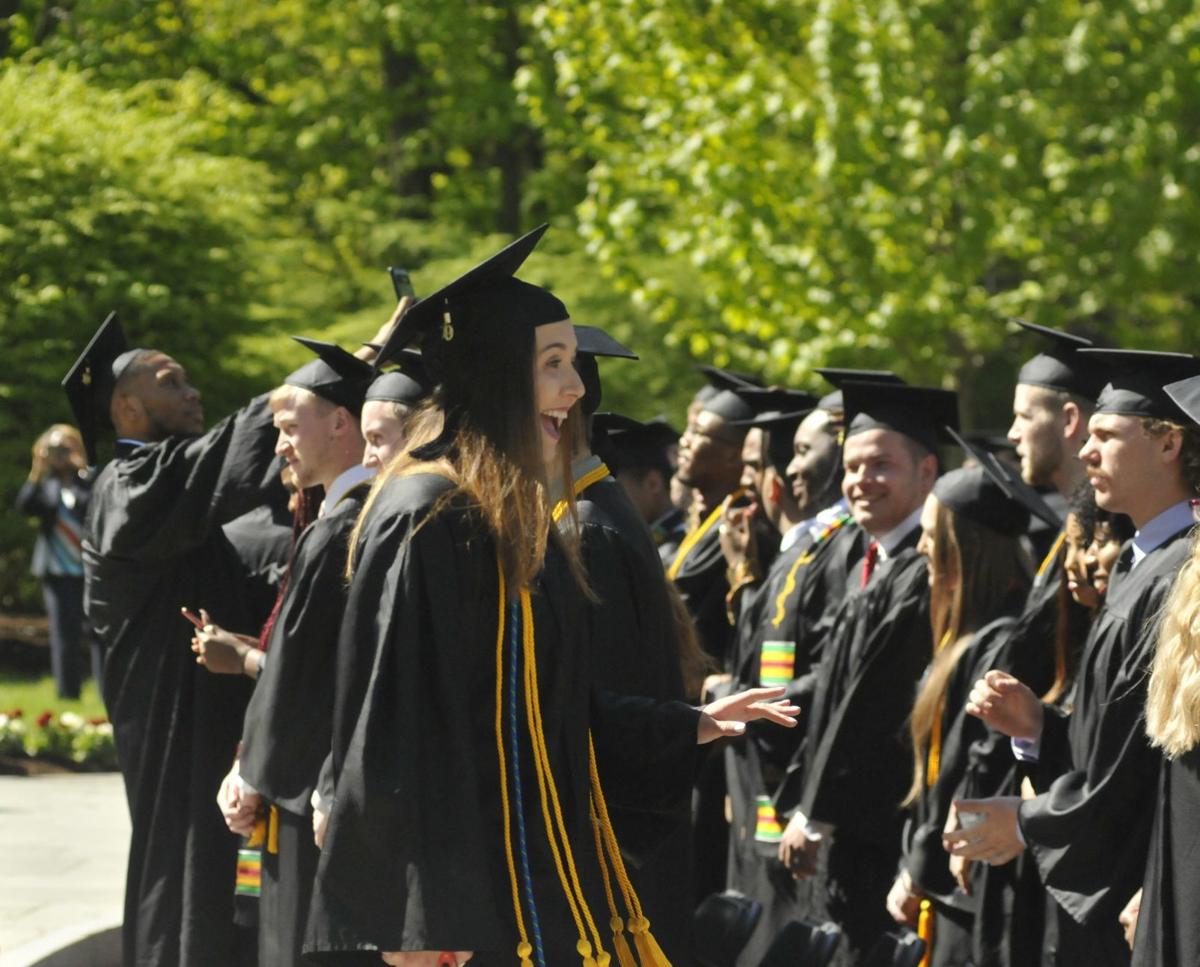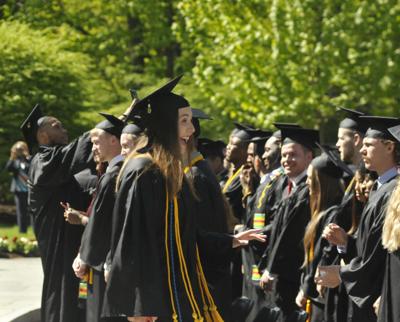A little over six months after Wells College was placed on probation by its accrediting organization, the institution's president said it has submitted a required monitoring report and is focused on long-term stability.
In late June, the Aurora-based private college was informed of the designation by the Middle States Commission on Higher Education. The commission said the college was not meeting its "Planning, Resources, and Institutional Improvement" standard and was not in compliance with its standard related to financial documentation, funding sources and financial development. Wells was given two years to fully comply with the requirements for its academic accreditation to be renewed, though it remains fully accredited during probation. The institution was directed to turn in a progress report by Dec. 1.
Wells College President Jonathan Gibralter said the report included "positive actions" the college has taken since the probation news. That included hiring new administrators such as Vice President and Chief Financial Officer Carl Sgrecci, who started in September; Vice President for Enrollment Services Gerard Turbide, who began in July; and new Vice President for Advancement Lawrence "Larry" Jerome, who came in in August.
People are also reading…
The report also included Wells' increasing enrollment in a study abroad program administered by the college in Florence, Italy, that is largely attended by students from other colleges. That program, which has been held for decades, generates about 18% of Wells' operating budget, Gibralter said. He noted the college is expecting about 172 students enrolled in the program this year, which Gibralter said would tie a previous enrollment record.
Peer reviewers acting on behalf of the commission and a commission staff member visited Wells on Dec. 12 and 13. Gibralter said the visit went well.
"The team commended us for the thoroughness of the work we did on the report, the data that we provided to them," he said.
The commission's findings will go to a committee that meets in February. That committee will meet with the full commission in March, Gibralter said. Wells won't find out what action the committee recommends, such as taking the institution off probation or continuing it, until after that meeting.
The president noted the college has focused on enacting "a plan to have our accreditation fully reaffirmed."
"I've come to realize that hoping is not a strategy, and our work has been fully focused on steps to be taken for this institution to remain a thriving institution into the future," Gibralter said.
The college doesn't view its efforts solely as to get off probation, he continued, but specifically aimed at Wells' long-term viability.
Gibralter praised the work done by the administrators. He mentioned the strategies Turbide has implemented for admissions, including hiring a new dedicated recruiter for Long island and changes to Wells' campus visitation program, with an increase by prospective students and their families. He cautioned it is too early to project what could happen in the upcoming enrollment cycle and the college don't know what the fruits of Turbide's labor will look like until mid-May.
"I feel very confident in the team and I have enormous confidence in the future of this college," Gibralter said.
Another action Wells is taking is a jointly-signed memorandum of understanding with Monroe Community College. If approved by the state Department of Education, Wells will offer a bachelor's degree completion program at Monroe's downtown campus in fall 2020. Under this program, Gibralter said, Monroe students who complete an associate's degree can go directly into Wells' business program, complete two years and get their four-year degree without having to go anywhere except Monroe's facility.
Wells has also had exploratory discussions with Cayuga Community College about offering a similar kind of program but Gibralter said "we're looking at possibly the health science area."
"We recognize that not everybody wants to travel to Aurora and perhaps, live in Aurora, to get their bachelor's degree," Gibralter said. "So we're trying to be as creative as possible in bringing these bachelor programs to where the student are."
Gibralter said an important part of the college's operating budget is "the generosity of our alumni and of many foundations. They have seen this as a call to action and their financial support has been absolutely extraordinary."
Wells amassed about $1.5 million in financial gifts from contributors from Dec. 13 through Tuesday.
"It touches my heart in a way you can't even begin to imagine to know how much people love this school," he said.
The college underwent a series of cost-saving measures after the probation announcement, including not filling open positions, a 10% pay cut for senior administrative staff, including Gibralter, and pay reductions for current full-time employees. The president previously said that latter reductions ranged from 3% to 6% depending on that employee's salary. He said at the time the college hopes those those cuts will only last for a year. The college also had a retirement incentive program for faculty and staff with over 10 years of service and who are at least 60 years old. Gibralter said Wednesday all of those moves yielded nearly $900,000 in savings.
Gibralter said Wells is operating with a strategy for the future.
"It would be certainly my strongest desire that, based upon the work we're doing, that Middle States would remove the probationary status sooner than later," he said. "I have no control over that. I only have control over what we do every single day here on this campus."​
Staff writer Kelly Rocheleau can be reached at (315) 282-2243 or kelly.rocheleau@lee.net. Follow him on Twitter @KellyRocheleau.

















